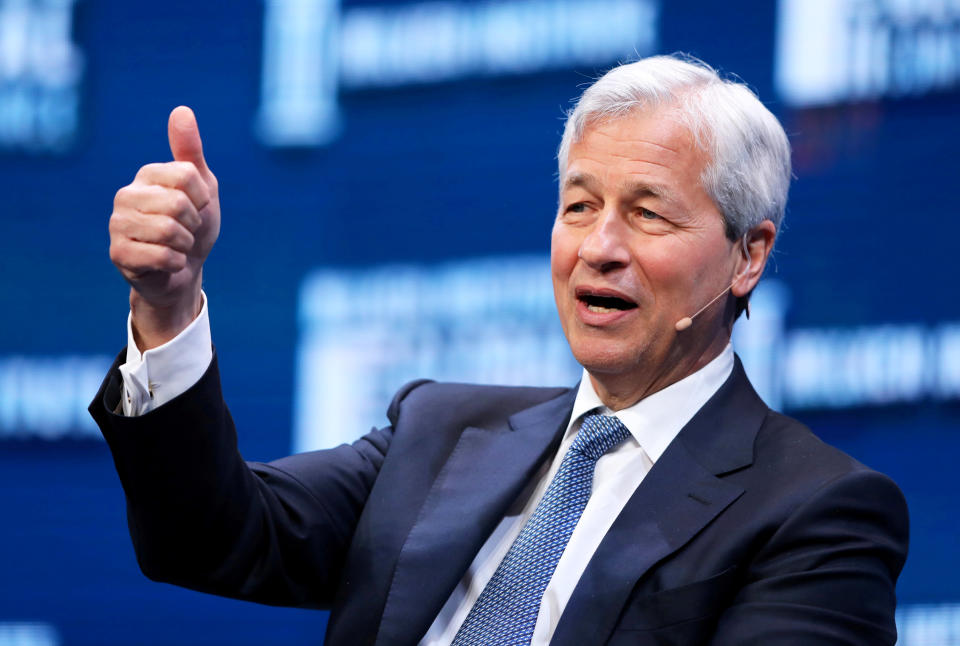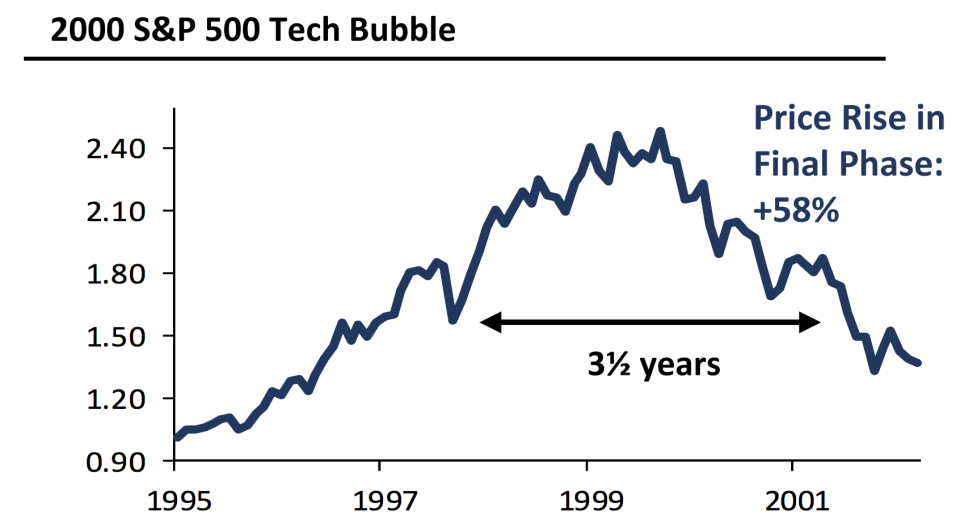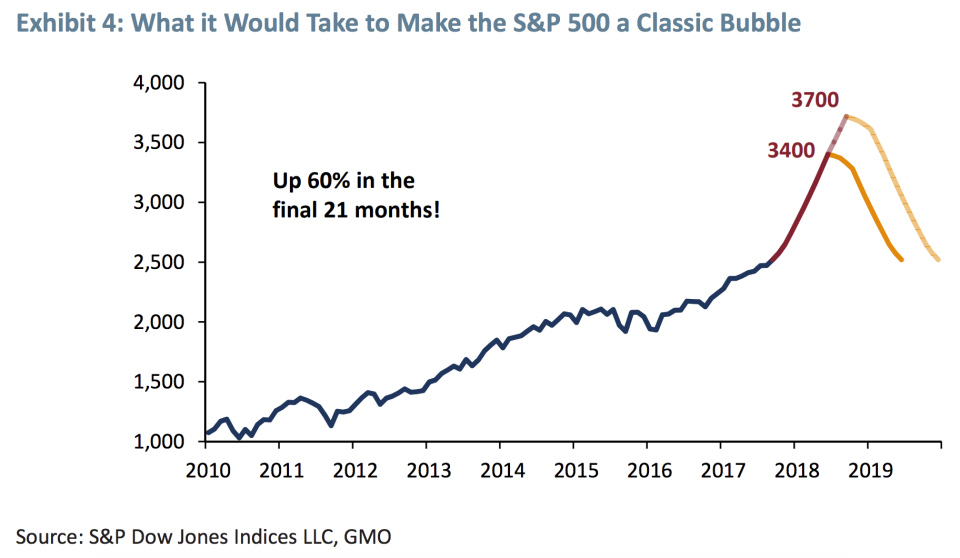Financials, retail, and Washington — What you need to know for the week ahead
The first week of 2018 looked a lot like many weeks in 2017.
The news out of Washington, D.C. was oftentimes too bizarre to believe. The economic news shows the U.S. economy continues to grow and create jobs. And last but not least, the stock market surged to record highs.
In the week ahead, investors will contend with a slow economic and earnings schedule for the first couple days of the week, with small business optimism and job openings data on Tuesday serving as a highlight. But the pace will pick up later in the week with Wednesday earnings results from Lennar (LEN) and earnings out Thursday from Delta Airlines (DAL). Friday will be the week’s busiest day.
On Friday, investors will get December readings on inflation and retail sales along with a flood of earnings from the financial sector, unofficially kicking off earnings season. JP Morgan (JPM), Wells Fargo (WFC), PNC Financial (PNC), and BlackRock (BLK) are all scheduled to report earnings on Friday as the highly-anticipated fourth quarter earnings period gets underway.

This past week, the biggest non-political event was the Friday release of the December jobs report, which showed 148,000 jobs were added to the economy in the final month of 2017 while the unemployment rate held steady at 4.1%.
Economists at Deutsche Bank called the report “slightly disappointing,” while UBS was less charitable, writing Friday that, “The softness in the December print is a concern, especially as the weakness was broad based. Although just a single month print, the December number leaves little momentum heading into 2018 and makes a heavier lift for any bump to activity from tax reform.”
Economic calendar
Monday: Consumer credit, November ($17.8 billion expected; $20.5 billion previously)
Tuesday: NFIB small business optimism, December (108 expected; 107.5 previously); Job openings and labor turnover survey, November (5.996 million jobs open previously)
Wednesday: Import price index, December (+0.4% expected; +0.7% previously)
Thursday: Producer prices, December (+0.2% expected; +0.4% previously); Initial jobless claims (245,000 expected; 250,000 previously)
Friday: Consumer price index, month-on-month, December (+0.1% expected; +0.4% previously); “Core” consumer price index, year-on-year, December (+1.7% expected; +1.7% previously); Retail sales, December (+0.4% expected; +0.8% previously)
Jeremy Grantham’s bubble musings
Jeremy Grantham, co-founder and chief investment strategist at GMO, is one of the investing businesses most respected thinkers.
And while Grantham’s value-investing orientation may have had him sounding excessively bearish on markets in recent years, few investors get the attention of the markets-at-large when they write up their latest thinking on where the investing landscape stands now. Last we heard from Grantham he was touting the benefits of investing in emerging markets.
But this past week Grantham made waves when he published a nine-page missive outside of his regular quarterly published schedule to warn investors about a possible melt-up in markets, the final stage of a currently overheated market that worries the market veteran.
“I find myself in an interesting position for an investor from the value school,” Grantham writes.
“I recognize on one hand that this is one of the highest-priced markets in US history. On the other hand, as a historian of the great equity bubbles, I also recognize that we are currently showing signs of entering the blow-off or melt-up phase of this very long bull market.” (Emphasis ours.)
Grantham and others have long discussed the idea that while the current U.S. stock market is expensive relative to history, the end of asset bubbles are often preceded by a mania, or a “blow-off top,” where prices rise further and faster than most imagined possible. Just before coming back down. The moves seen in the stock market right before the bursting of the tech bubble are the most recent and perhaps vivid example of this.

The stock market’s rally last year and the rip-roaring start markets have gotten off to in 2018 certainly add some credence to the idea that we are now entering this final, euphoric stage of the post-crisis bull market that has been met with skepticism for years.
Grantham writes that, “Until very recently [the stock market] could justifiably be described as clawing its way steadily higher. But just recently, say the last six months, we have been showing a modest acceleration, the base camp, perhaps, for a final possible assault on the peak… A range of 9 to 18 months from today and a price rise to around 3,400 to 3,700 on the S&P 500 would show the same 60% gain over 21 months as the least of the other classic bubble events.”

And perhaps most worryingly for those who see the stock market’s current rally as being based not on euphoria but solid economic fundamentals, Grantham adds that many bubbles are “excellent fundamentals euphorically extrapolated.” Markets don’t rise, then, for no good reason at all but for apparently good reasons that later turn bad.
The balance of Grantham’s report is required reading for investors, regardless of their view on the current market. He discusses the role of central banks, tech stocks, bitcoin, and the housing market in the current market environment and how seemingly disparate market themes have re-connected during past market phases.
Of course, as Grantham notes, no two market cycles — even the classic bubbles — are the same.
“[Market cycles] share the fact that there are many signs of investor euphoria, sometimes indeed approaching the madness of crowds, but the package of psychological and technical indicators has been different each time,” Grantham writes.
“The historian has to emphasize the big picture: In general are investors getting clearly carried away? Are prices accelerating? Is the market narrowing? And, are at least some of the other early warnings from the previous great bubbles falling into place?”
Expect the pursuit of answers to some of these questions to be a primary market theme in 2018 and through the rest of this market cycle. We have clearly moved past this being “the most hated” bull market ever; how much investors love this market from now until it ends will determine where we go from here.
—
Myles Udland is a writer at Yahoo Finance. Follow him on Twitter @MylesUdland
Read more from Myles here:

 Yahoo Finance
Yahoo Finance 
